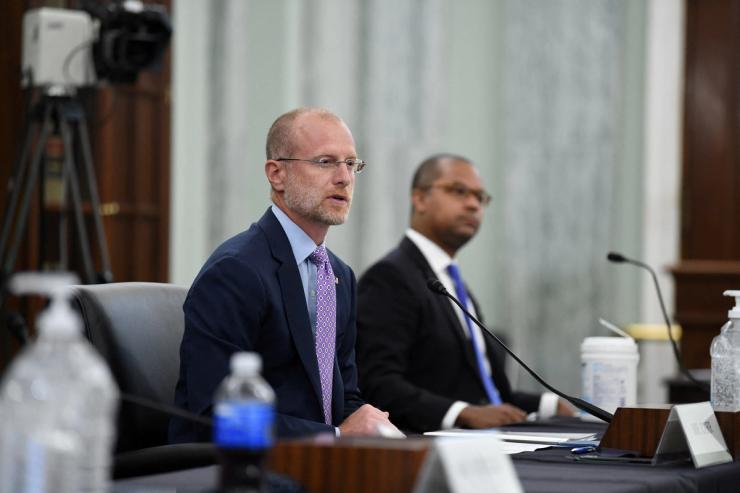The airwaves war is heating up.
AT&T’s deal to buy $23 billion worth of spectrum from Charlie Ergen’s EchoStar this week was a reminder that bandwidth is a limited commodity — owned by the public and licensed to private companies that are keen to deepen their own moats (in the case of legacy wireless giants) or crack in (in the case of Elon Musk).
Semafor reported Tuesday that T-Mobile and Musk’s SpaceX had both bid for part or all of EchoStar’s spectrum, which is one of the largest underutilized tracts of bandwidth. We’re told T-Mobile’s ultimate owners, Deutsche Telekom, tapped the brakes, and it’s unclear whether SpaceX, which envisions a satellite-to-ground cellphone network through Starlink, is still interested in the chunk that AT&T didn’t want.
What happens to Ergen’s airwaves cache will matter to consumers, says Peter Adderton, who co-founded Boost Mobile, which sold to Ergen in 2019 to form his planned competitor to the big three providers. That never happened, and in an interview with Semafor, he urged the FCC to consider competition when weighing approvals for AT&T’s purchase.
“Everything that they do is to ensure that nobody else has a leg up on them,” Adderton told Semafor of the big carriers.
Could other suitors emerge? Adderton sees Verizon as a beneficiary of the kind of spectrum that EchoStar is shopping around, while Amazon has its own fledgling satellite network — Kuiper — and could step into the fray.



